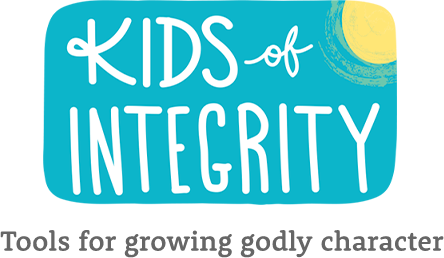Humility
Introduce a number of games that remove one of our five senses. Discussion point: God gives every person different gifts and abilities; no one person is more important than the next.
To illustrate how important each part of the body is and how the whole body works together, complete your choice of these fun and potentially messy exercises. After each exercise, ask your child what body parts they used to complete the challenge and what parts they missed using!
- Blindfold one child, then have a second child clasp their hands behind his or her back. Then instruct the blindfolded child to feed the other some yogurt, or some equally messy food. The first time you do this exercise, allow the person being fed to speak out loud to direct the person feeding them. The second time, don’t allow the person being fed to give any instructions at all.
Note: You may prefer to use two adults for this exercise, or allow a child to feed an adult.
- Play a very basic game of Charades. Beforehand, you’ll need to prepare notecards featuring pictures of household appliances. Examples that work well include a kettle, microwave, toaster, stove, fridge, washing machine, dryer, blow-dryer, curling iron, blender, radio, television or computer. Have each child draw a card and act as if they are the appliance, while the remaining children try to guess which appliance is being mimicked. Begin with a “no noise” rule. If guessing the correct appliance proves too difficult, allow the actor to make noise.
- Blindfold a child and ask them to draw a picture of something simple. Guide their hands to the paper, but leave the rest to the child. Next, have the child draw the same item with their eyes open. Compare the results.
- Play Tape the Tail on the Bunny. Print or draw a picture of a rabbit on some poster paper (minus the fluffy tail). Put tape on some cotton balls and have your children take turns trying to accurately tape a tail on the rabbit while wearing a blindfold.
- Stand outside a glass window or glass door and take turns trying to communicate with those inside. A vehicle works well because it’s somewhat soundproof.
- After completing your choice of the activities, read Romans 12:3-10 and use the discussion questions to talk about how the different parts of the body working together can be like a family working together.
Questions for discussion
- How hard does life become when you don’t have the use of your eyes?
- What happens to our ability to communicate when we don’t have the use of our mouths?
- Which is more valuable: the use of our eyes, the use of our ears or the use of our mouths?
- Imagine that our hands, mouth and ears could talk to each other. What might they say to each other if they were becoming overly proud of their role in the body?
- Can you think of a special talent or ability that God that has given you?
- How could you use your ability to serve others?
- Why do you think God gave people different gifts?
Note: When we consider “gifts” young children can use, examples include a cheerful disposition and a smile that can be offered to anyone at any time. “Helpful hands” can be used to open doors, carry packages and to clean up messes. A helpful pair of arms can offer a hug to someone who is feeling sad. A kind voice can place a phone call to a friend who is sick or to a grandparent, who will be blessed because someone called to say, “I love you!”
Key concepts
All of these fun exercises help illustrate that we need all the parts of our body to function well. Basic life tasks become very difficult when we don’t have the use of our eyes to guide our hands. If we cannot use our voice, it is challenging to communicate. God gives everyone gifts and abilities so we can use them to serve others. If we begin to think our gifts are more valuable than the gifts God has given to others, our pride can get in the way of the “body of Christ” functioning as it should.
When we compare ourselves to one another, we can be tempted to question each person’s value. As a result, our pride can get in the way of things being accomplished in a way that honours God. If we are tempted to be proud of a gift God has given us, we can remember the instructions written in Romans 12:9-11 that tell us to use our gifts to serve God and to show our love for each other by honouring one another above ourselves.
Relevant Scripture
Romans 12:3-6a “For by the grace given me I say to every one of you: Do not think of yourself more highly than you ought, but rather think of yourself with sober judgment, in accordance with the measure of faith God has given you. Just as each of us has one body with many members, and these members do not all have the same function, so in Christ we who are many form one body, and each member belongs to all the others. We have different gifts, according to the grace given to us.”
- Acceptance
- Adaptability
- Attentiveness
- Christmas
- Compassion
- Confidence
- Consideration
- Contentedness
- Cooperation
- Courage
- Courtesy
- Discernment
- Easter
- Faithfulness
- Forgiveness
- Generosity
- Gentleness
- Gratitude
- Harmony
- Honesty
- Humility
- Joy
- Kindness
- Obedience
- Patience
- Perseverance
- Respect
- Responsibility
- Reverence
- Righteousness
- Self-control
- Thanksgiving


